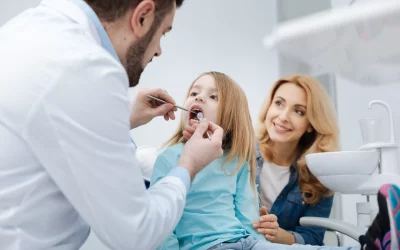AL Fairhope Best Family Dentist Fighting Gum Disease at Home Gingivitis, or to non-dentist people, gum disease, is a very common condition. Symptoms like bad breath often, red/swollen gums,...
Family Dentist Near Me
Fairhope Family Dentist Simple Ways to Fight Gum Disease Aloe Vera Aloe Vera is an anti-inflammatory with healing properties. It also can be beneficial when dealing with gum disease. It is an...
Baby Oral Care: Baby Teeth Matter!
As a parent, you want to do everything you can to ensure that your child has a healthy and happy life. One thing you may not have considered is baby oral care. Yes, baby teeth matter! Here are three...

